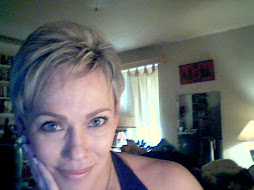Another red letter day for the forces of disinformation (uninformation?) as Toronto radio station CHFI (98.1 on your FM dial) announced they will not be running advertisements for breakthrough playwright Eve Ensler’s latest offering The Good Body.
It seems said advertisements in quite logically promoting the author as the creator or the much lauded The Vagina Monologues, necessarily makes mention of the word ‘vagina’.
Vagina.
Quoth station manager Julie Adam: nevermore.
Turning down some $20,000 in advertising revenue to guard the tender sensibilities of her listening audience, Adam, Program Director and General Manager of CHFI said that though she had heard the event was fabulous, and that she, herself, personally, was a woman who had no trouble saying “that word” (taking enormous care to not actually say ‘that word’) the mandate she claims she is charged with – family friendliness – makes it impossible for her to put anything on her radio station that parents might feel uncomfortable with.
“You use a word like that,” explained Adam, “and the next thing you know they’re asking, ‘Mommy or daddy, what’s that mean?’
“If you want safe,” she continued, “CHFI is your station.”
Really Ms Adam?
Safe?
Safe from the danger of marauding sexual organs? Rampaging penises? Breasts set on taking over the world? Vicious vulgar vaginas?
As scandalous as a Victorian piano leg obscured by neither drape nor pantalette, it would seem that the mere mention of the word ‘vagina’ is enough to arouse unspeakable dread in the heart of a radio station manager circa 2006.
What nameless fears are aroused by the word vagina? Is it the word? Is it the vagina itself?
Is there something wrong with vaginas?
If we’ve learned little else in recent years, we must have at least grasped that children need to learn about their bodies to learn about themselves. Telling a little boy he has a penis or a little girl that she has a vagina is but the very first step in giving them the words they need to know themselves, their bodies and their boundaries.
Implying there’s nothing shameful or disgusting or embarrassing about their bodies by making the words acceptable empowers children to use those words, to tell anyone who might wish to touch them or hurt them or take advantage of their youth or their innocence or their ignorance that they know what they have – and they know it is fine and good and it is theirs.
Telling someone not to touch your wee wee or your pee pee or your hoo hoo carries somewhat less power than telling a molester to take their hands off your vagina.
Educators agree how important it is to teach children as young as toddlers – at whatever age they are able to say the word vagina – the appropriate names of their body parts; parents and children need to have a shared vocabulary, if for no other reason than that children will be able to explain exactly and explicitly whatever happened to them should such a tragedy take place.
If a child is too shy or ashamed or ignorant to even describe what happened to them, that’s not safe.
Using real words shows respect for a child – and for their body. Using the appropriate words distinguishes between sexuality and silliness and shame. Using the appropriate words is, what’s the word… appropriate.
I don’t expect CHFI to teach children about sex or sexuality or what they should know, or how they should be told or when. But neither do I expect them to take a stand that sends a message that has another meaning altogether. A message that essentially says that the word ‘vagina’ is unfit for public discourse.
It’s that constant message – the one that tells little girls that the most intimate parts of their body are something secret, something hidden, something wrong.
It’s not absence of message – as a vagina is not an absence. It’s a presence – as a vagina is a presence. But unlike a vagina, it’s a nasty, dirty presence – a message of shame.
Vagina, vagina, vagina.
Oh say it radio station manager. Or if you can’t say it, at least don’t take part in hiding it and implying there’s something wrong with the word by refusing to allow it to be said publically in an entirely appropriate context.
Go see The Vagina Monologues. Go see The Good Body. Learn something about the vagina. About the body. But quit suggesting you protect your audience by being part of what makes children unsafe.
There's something shameful here, but it's not a vagina.
Let’s make vaginas safe for everybody! Step one: say it.
Vagina.
VAGINA!
Wednesday, February 08, 2006
Subscribe to:
Post Comments (Atom)

No comments:
Post a Comment